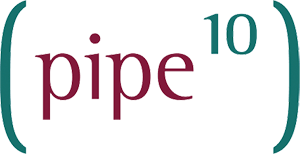Overview
In accordance with mandated organisational security requirements set forth and approved by management, Pipe Ten has established a formal set of information security policy and supporting procedures. This comprehensive policy document is to be implemented immediately along with all relevant and applicable procedures. Additionally, this policy is to be evaluated on a yearly basis for ensuring its adequacy and relevancy regarding Pipe Ten’s needs and goals.
Purpose
Pipe Ten is to ensure that the information security policy adheres to the following conditions for purposes of complying with the mandated organisational security requirements set forth and approved by management.
This policy and supporting procedures are designed to provide Pipe Ten with a documented and formalised information security policy in accordance with Requirement 12.1 of the PCI DSS standards and A.5.1.1 of the ISO27001 standard.
Compliance with the stated policy and supporting procedures helps ensure the safety and security of all Pipe Ten system components within the cardholder data environment and any other environments deemed applicable.
Scope
This policy and supporting procedures encompasses all system components within the cardholder data environment that are owned, operated, maintained, and controlled by Pipe Ten and all other system components, both internally and externally, that interact with these systems, and all other relevant systems.
- Internal system components are those owned, operated, maintained, and controlled by Pipe Ten and include all network devices (firewalls, routers, switches, load balancers, other network devices), servers (both physical and virtual servers, along with the operating systems and applications that reside on them) and any other system components deemed in scope.
- External system components are those owned, operated, maintained, and controlled by any entity other than Pipe Ten, but for which these very resources may impact the confidentiality, integrity, and availability (CIA) and overall security of the cardholder data environment and any other environments deemed applicable.
- Please note that when referencing the term “system component(s)” or “system resource(s)” it implies the following: Any network component, server, or application included in or connected to the cardholder data environment or any other relevant environment deemed in-scope for purposes of information security.
Key People
Carl Heaton – Technical Director
Gavin Kimpton – Managing Director
David Hooper – Operations Manager
Key Policy Summary
- Management Systems
- Information Security Management System Manual
- Internet Guidelines, Responsibilities and Acceptable Use
- Security Awareness and Training
- Quality Assurance
- Risk Management Methodology
- Access Control
- Authentication & Password
- Multi Factor Authentication
- Cryptographic Key Management
- Encryption
- RBAC (Roles & Responsibilities)
- Staff Transition
- Authentication & Password
- Disaster and BCP
- Business Continuity Plan (BCP)
- Incident Response Flows
- Disaster Recovery Incident Flows
- Security Incident Flows
- Network Diagrams
- Tangible
- Destruction & Recycling
- Asset Inventory
- Physical Security
- Physical Maintenance
- Device Security
- Removable Media
- Controlled Logical Reviews
- Configuration Policies
- Environmental Security
- Secure Environments
- Working Environments
- Rack Access & Third Parties
- Wireless Environments
- Data
- Documentation
- Information Disclosure
- Data Protection
- Cyber Security Actions
- Exchange of Information
- Information Security Classification
- Vulnerability Management
- Security Testing
- Software
- Software Development Standards
- Approved Softwares
- Software Licensing and Usage
- Change Control & Management
- Configuration Management
- Patch Management / Patching
- Software Development
- Time Synchronisation (NTP)
- Monitoring
- Change Freeze
- Authoritative Competencies
- Performance and Utilisation Monitoring
- Logging and Monitoring
- Other Parties
- Banking
- Applicable Legislation
- Supplier Relationship
- Contractual Obligations
- Authorities and Special Interest Groups
Last changed: 2025/01/07 by Carl Heaton

Classification: Public
Last saved: 2025/01/07 at 11:21 by Carl
